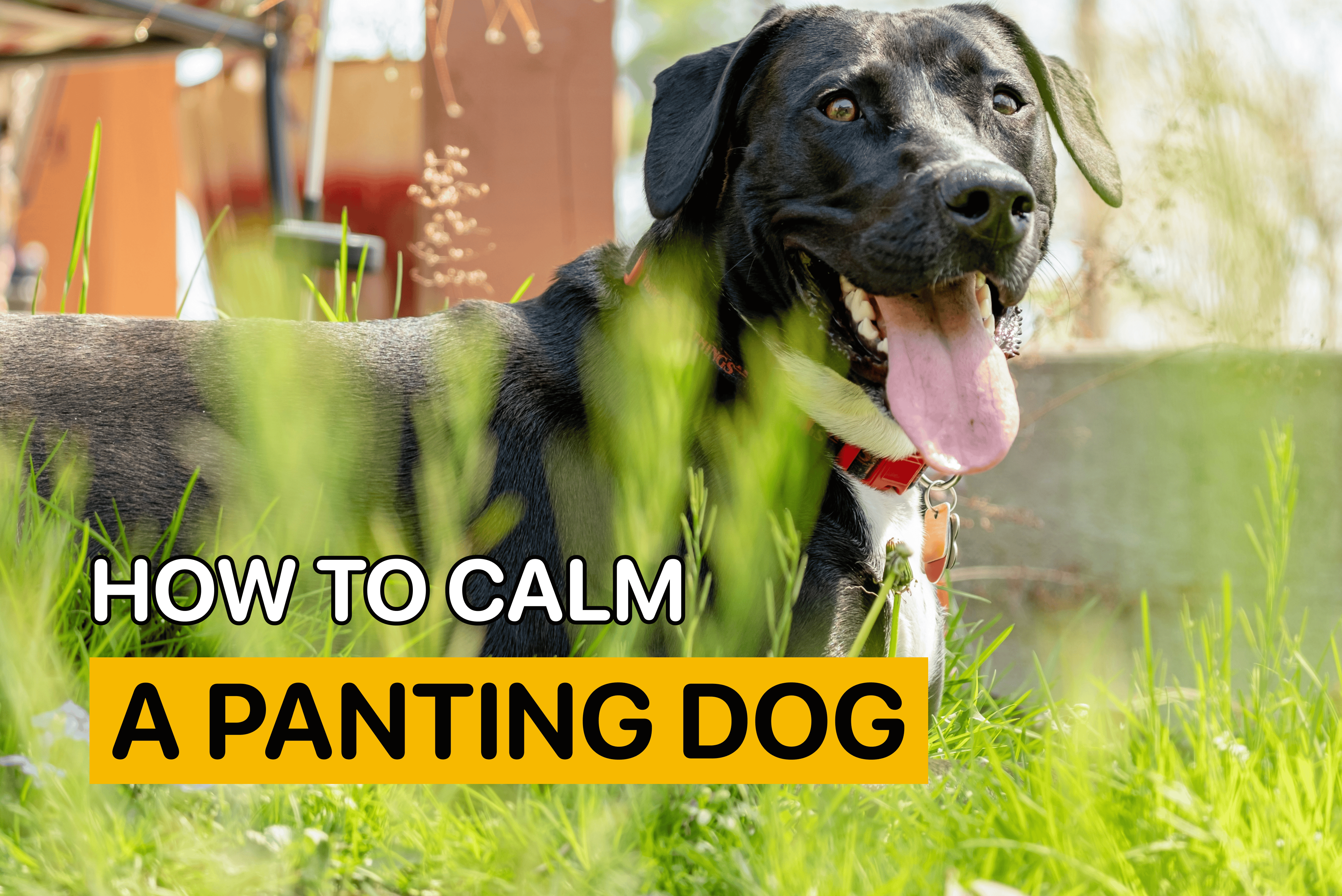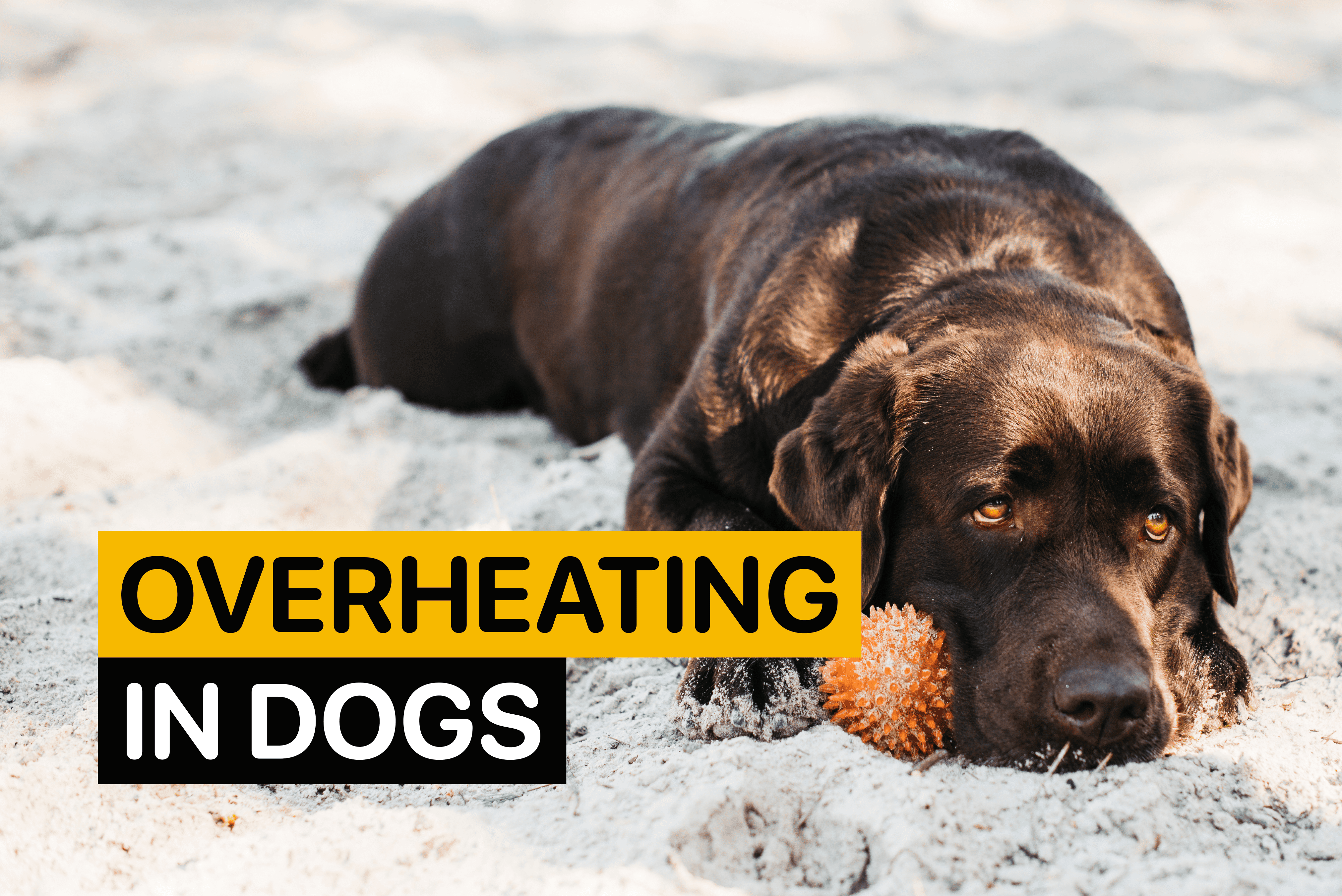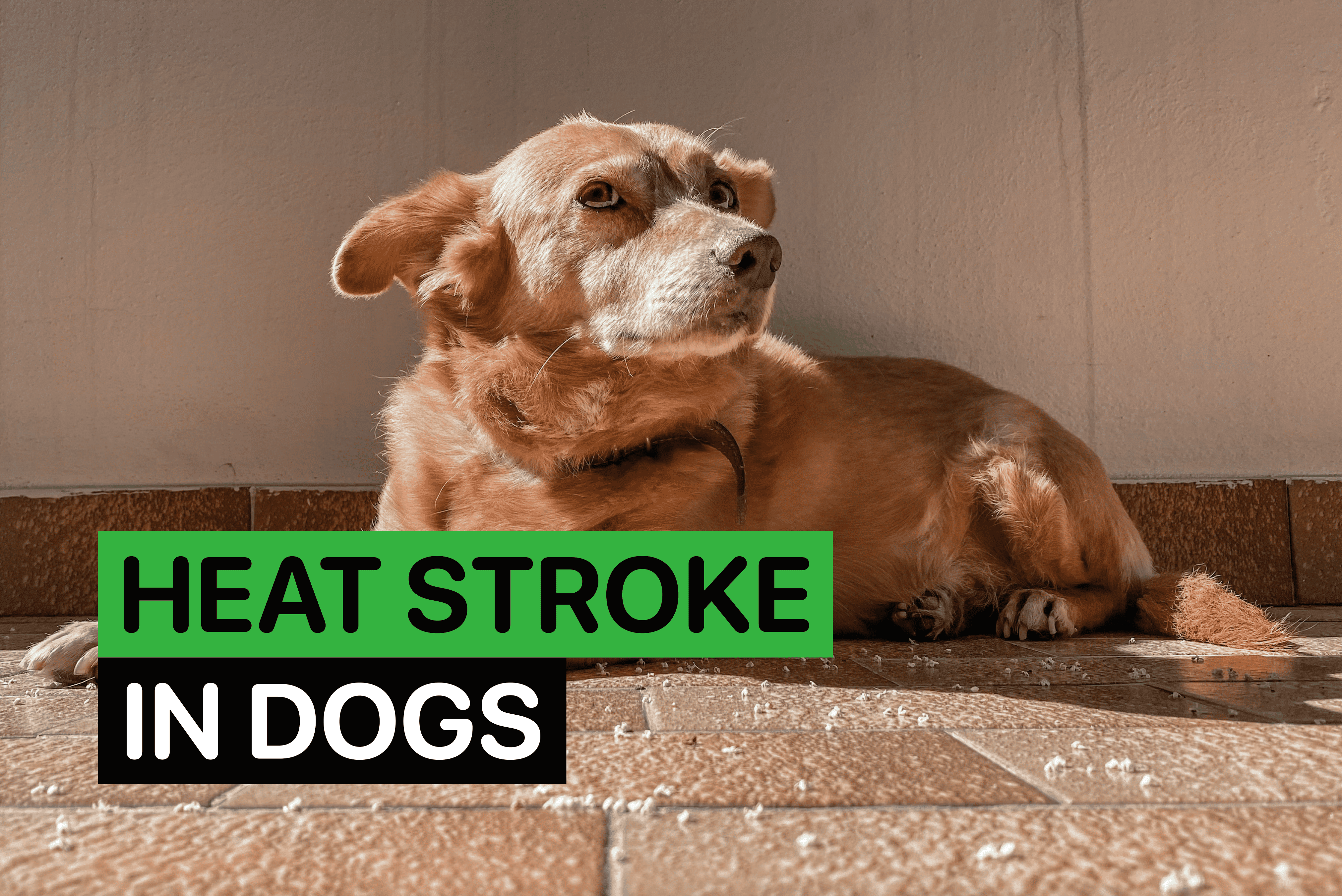Why is My Dog Panting a Lot?

By
Woofz Team Updated on |Reviewed by Annie-Mae Levy
Imagine you’re out for a night walk with your dog, Max, on a cool evening. Max usually pants to regulate his body temperature, especially after he returns from a happy run. But this time, you see your canine companion breathe faster, though it’s not very hot, and you’ve been walking at a light pace. What does it mean when a dog is panting a lot?
This panting could indicate Max is in distress, which is usually a hidden health problem. That’s why it’s crucial to know how to recognize a problem. By the end of this article, you will understand clearly when panting in dogs is typical and when you should consult a vet immediately.
Possible Reasons Why Dogs Pant Heavily
A dog's heavy panting may indicate underlying issues, ranging from environmental factors to serious health concerns.
Knowing the possible causes can help pet lovers figure out when their furry friend requires help or medical intervention, so let’s discuss some of them.
Environmental factors
The environment is an essential factor in a dog’s panting behavior. Hot temperatures, high humidity, and poor ventilation can all cause dogs to pant. A calm and comfortable environment is critical, particularly in the summer.
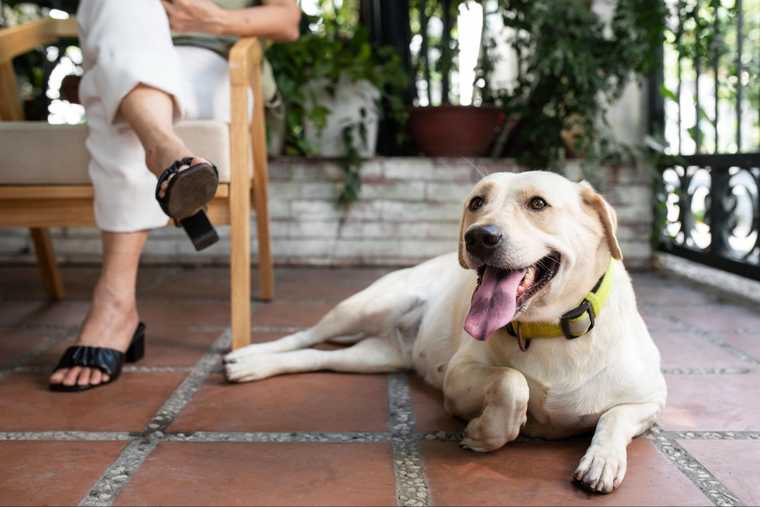
Breed-specific traits
One of the reasons for dog panting is their genetic makeup. Panting is more common in certain breeds, especially brachycephalic breeds with short noses and flattened faces, such as bulldogs, pugs, and French bulldogs. How their faces are shaped can make breathing more difficult, meaning they naturally pant a lot.

Heat exhaustion or heatstroke
If you’re wondering what causes a dog to pant a lot, check the temperature around them first. Dehydration or sunstroke is common in dogs, especially on hot days or following energetic activities. The dog’s body tries to regulate temperature, which leads to breathing heavily, but if the panting is severe and the animal is lethargic or unresponsive, urgent vet attention is essential.
Anxiety or stress
Anxiety or stress may also lead to a dog excessively panting. Like humans, animals suffer from stress that can manifest as physical symptoms such as fast breathing. Abnormal panting in dogs can be a reaction to loud sounds, new surroundings, or separation fear.
Take our wellbeing check!
Answer a few quick questions to see if your dog might be showing signs of stress - and learn what to do next.
🕒 Start the check!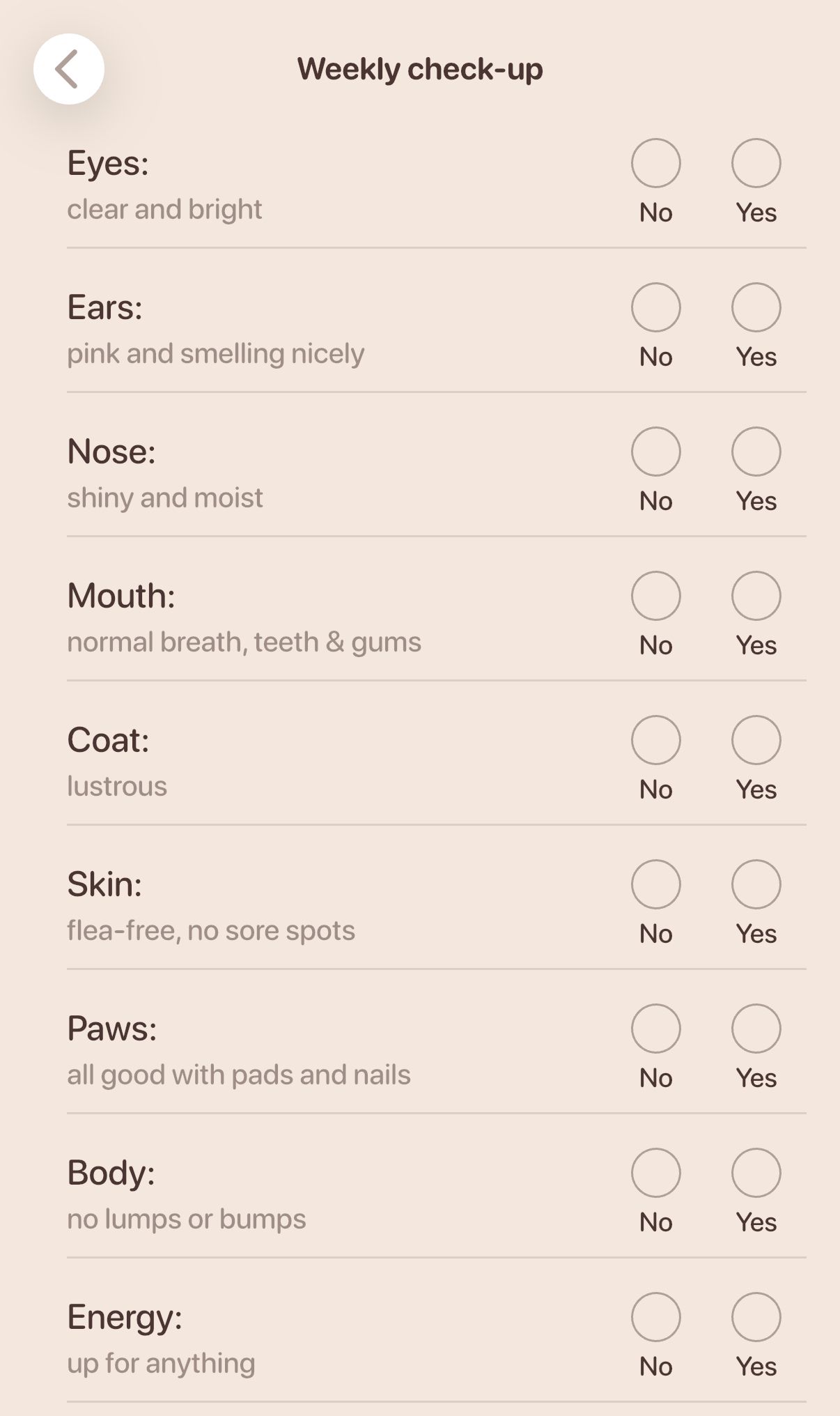
Respiratory issues
Respiratory conditions, such as asthma or bronchitis, make it hard for an animal to breathe normally, and, as a result, the dog breathes more heavily as they try to get enough oxygen.
Medical conditions
Finally, a dog panting uncontrollably can be caused by certain medical conditions, including heart, Cushing’s, or respiratory diseases. You should contact a vet to closely observe these symptoms and get a thorough checkup to determine the cause of the problem and suitable treatment.
Signs of Excessive Panting in Dogs
Dogs may pant heavily for different reasons, including excitement, exercise, heat, or stress. Nevertheless, some cases of excessive breathing are associated with severe health issues that will need urgent veterinary attention.
Consider counting the breaths per minute ratio to identify whether your dog’s breathing pattern is abnormal and may be a symptom of heavy panting. It’s best to do this while the dog rests or is asleep to exclude the possibility of panting excessively due to excitement.
The normal breathing rate of a healthy dog is less than 30 breaths per minute. A respiratory rate of over 35 breaths per minute is a medical concern, and you should consult a vet immediately about your dog’s condition.
Since abnormal panting in dogs is often a sign of an underlying medical condition, you must be aware of other worrying signs that can accompany excessive panting.
Seek out a medical professional if you notice any of the following signs:
- Rapid or shallow breathing that persists even after resting
- Noisy or labored breathing that sounds like wheezing, snoring, or choking
- Blue or pale gums that indicate a lack of oxygen
- Coughing or gagging may indicate a respiratory infection, heart disease, or a foreign object in the throat
- Excessive panting may indicate pain, fever, poisoning, or heatstroke
- Lethargy and muscle weakness in a dog
- Loss of appetite (often paired with vomiting) or excessive thirst
- Abnormal drooling, nose or eye discharge
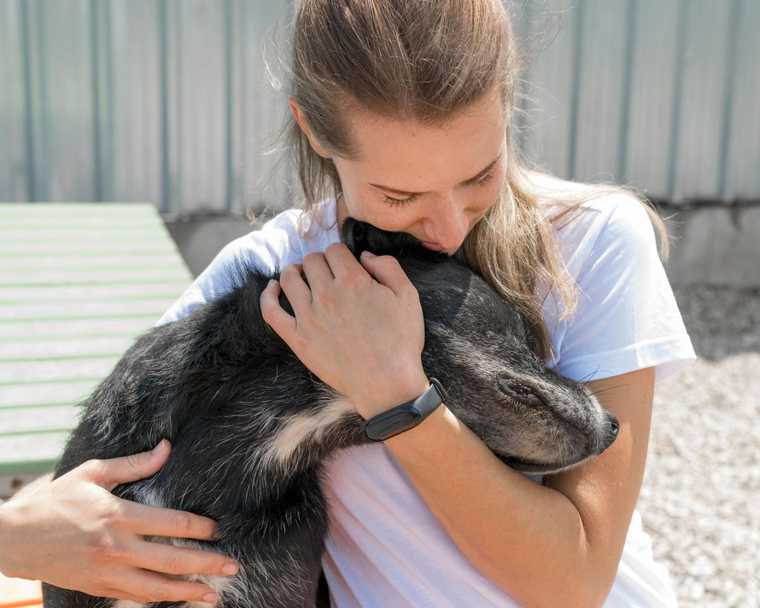
How to Address Dog’s Excessive Panting
There’s no one-fix-all solution to abnormal breathing in dogs. Ideally, start by identifying why your dog is breathing faster than usual. Some causes, like overheating, can be easily addressed, bringing your dog’s breathing back to normal.
Prevent overheating and dehydration
Remember that panting is crucial for a dog to cool their body down. Canines regulate their body temperature by evaporating saliva, which contributes to heat reduction. So, if you notice your dog breathing heavily:
- Take them to a cool place
- Don’t let your dog be exposed to high temperatures and humidity, especially during summer
- Provide an access to fresh water
- During hot days, keep them in a cool, shaded area
- Never leave your dog in a car, even with the windows slightly open, as the temperature can quickly become a killer
- Reduce the intensity of your dog's physical activity and exercise during hot days, and avoid walking them on hot pavement or asphalt, which can burn their paws.
Create a calming environment
Another reason for excessive panting in dogs is stress. It can be caused by different reasons such as loud noises, strangers, separation, or even changes in routine. If you suspect your dog pants a lot due to anxiety, learn helpful techniques on how to calm down a dog to reduce their cortisol levels.
Here’s how to help your dog relax:
- Create a peaceful and comfortable atmosphere in which they will feel safe and relaxed.
- Natural remedies, like aromatherapy, music, and pheromones, are also beneficial for helping your dog through stressful situations.
- Don't punish or scold your dog for panting or other signs of anxiety, as this can only make them more scared and will further aggravate the problem.
- Praise your dog for their calm and positive behavior and ensure they’re provided with daily physical activity and mental stimulation so they are not bored and frustrated.

However, sometimes excessive panting doesn't go away after you modify a dog’s environment. In such a case, you should monitor your dog's behavior closely. A good approach would be to investigate your dog’s pattern of panting – panting excessively at night or in the morning, how often they do it, for how long, and the intensity of breathing, as well as other symptoms, such as coughing, wheezing, drooling, vomiting, or collapsing.
In addition, you should also be aware of worrisome symptoms that go hand in hand with heavy breathing. These include vomiting, excessive urination, lethargy, and more. If you notice any of those signs, do not hesitate to call your vet or the emergency clinic. Panting may be a symptom of a life-threatening condition that should be treated urgently.
If you unsure who to talk to when you have problems or are facing issues with your furry friend - Install Woofz, a dog training app that will help you understand your pet better and monitor their health with the Wellness dashboard.
Pro Tip: Use the Woofz Wellness Module to record your dog's excessive panting pattern and other symptoms to help you recognize abnormal breathing and help your vet identify the possible cause and the best treatment plan.
Look for veterinary care
If your dog is panting too much, is continuing, and is accompanied by other signs of distress, you should consult your vet as soon as possible. Your vet will check over your dog and conduct tests like blood work, X-rays, or an ultrasound to determine the underlying condition and rule out any serious complications.
Additionally, your vet will recommend the proper treatment and management options for your dog’s condition, which can differ depending on the cause, severity, and prognosis.
Wrap-Up
Panting is a normal and necessary activity for dogs; however, knowing why your dog is panting too much is very important. Awareness of the different reasons for panting and identifying when it may indicate a medical problem will help keep your pet healthy and happy.
